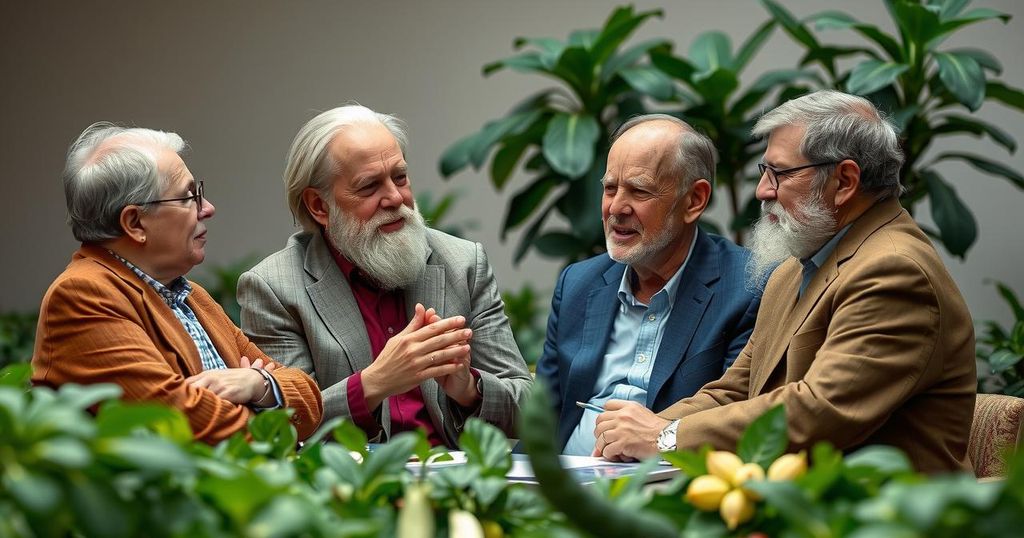Nobel Laureates Call for Bold Agricultural Innovations to Combat World Food Crisis

More than 150 Nobel and World Food Prize laureates have urged increased research and innovative agricultural practices to combat global food insecurity, emphasizing the threat posed by climate change and population growth. They advocate for a moonshot approach to boost productivity and distribution of food resources.
In an urgent appeal, over 150 Nobel and World Food Prize laureates have released an open letter advocating for substantial advancements in agricultural research and proactive food distribution initiatives. They highlight the alarming statistic that approximately 700 million individuals currently endure food insecurity and severe poverty. The signatories emphasize the necessity for a transformative approach, akin to a “moonshot” endeavor, to enhance food production methods and avert impending global food crises due to climate change and population growth. They assert that a proactive response is critical, as projections indicate deteriorating agricultural productivity, particularly in staple crops, amid increasing global demands.
Brian Schmidt, Nobel Prize winner in physics, described the challenge as a “destination with destiny,” emphasizing that this is a solvable issue provided adequate resources and leadership are committed to enhancing global food production. Moreover, he underscored the potential role of private organizations, such as the Gates Foundation, in spearheading initial funding efforts. The letter identifies essential goals, including improving photosynthesis in staple crops, reducing reliance on chemical fertilizers, and prolonging the shelf life of perishables as paramount to achieving food security.
Cynthia Rosenzweig, 2022 World Food Prize recipient and NASA climate researcher, affirmed that viable solutions are underway but require intensified support and investment from global leaders to transition from research settings to practical agricultural applications. She likened this endeavor to the historic commitment the U.S. made during the Apollo program, stressing the importance of collaboration and public backing to sustain progress in combating hunger. Overall, the letter serves as a clarion call for immediate action to safeguard the future of global food supply amidst escalating challenges.
The open letter released by Nobel and World Food Prize winners highlights a global agricultural crisis exacerbated by climate change and population increase. As food insecurity affects millions worldwide, experts demand urgent research and innovative agricultural strategies to enhance food production capabilities. The initiative aims to catalyze a collective response from governments and private sectors in order to mitigate impending food shortages and improve global food security. The call for “moonshot” efforts symbolizes the need for unprecedented commitment and collaboration in striving for solutions to these critical challenges.
The letter from the distinguished recipients of Nobel and World Food Prizes underscores a pressing need for immediate and transformative efforts to address global food security challenges. With the alarming rise in food insecurity and projected declines in crop productivity, a unified, multi-faceted approach involving increased research funding and innovative agricultural practices is essential. The parallels drawn to historical initiatives underscore the potential for achievement should collaborative efforts be prioritized and sustainably supported.
Original Source: www.detroitnews.com






